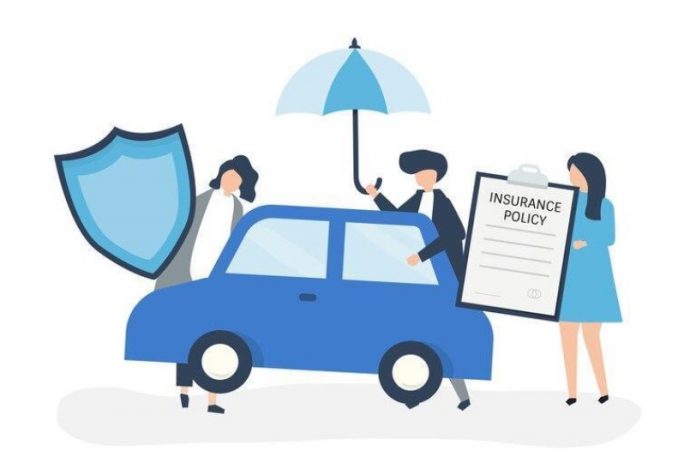Owning a car is a significant investment, and protecting that investment with the right car insurance is crucial. With so many options available in the market, picking the best policy can be challenging. Whether you are looking for third-party car insurance or a comprehensive policy, there are several factors to consider to ensure you are making the best decision. Here’s a breakdown of seven key factors that can help you choose the best car insurance policy for your needs.
Contents
1. Types of Coverage Offered
The first thing to understand when selecting a car insurance policy is the type of coverage being offered. There are two main types of coverage: third-party car insurance and comprehensive car insurance. Third-party car insurance covers damages or injuries you cause to other people or their property in an accident. It is mandatory in India as per the Motor Vehicles Act. Comprehensive car insurance, on the other hand, covers not only third-party damages but also your vehicle in case of accidents, theft, or natural disasters. Depending on your needs, you may want to opt for a comprehensive policy for better protection.
2. Insured Declared Value (IDV)
The Insured Declared Value (IDV) of your car plays a crucial role in determining your car insurance premium. IDV is the maximum claim your insurer will pay in case of total loss or theft of your vehicle. When choosing an insurance policy, ensure that the IDV reflects the correct market value of your car. Some insurers may offer a lower IDV to reduce premiums, but this can be a disadvantage if you need to file a claim. It’s best to choose a policy that offers a realistic IDV to safeguard your vehicle’s actual worth.
3. Add-On Covers
Add-ons are additional features that can enhance your basic car insurance policy. Common add-ons include zero depreciation cover, engine protection cover, roadside assistance, and more. While these can increase your premium, they provide extended protection for your vehicle. For instance, a zero depreciation add-on ensures you get the full claim amount without deductions for the depreciated value of car parts. When choosing a policy, consider which add-ons are valuable for your driving habits and vehicle usage. These can significantly impact your overall experience with your insurance.
4. Premium Cost vs. Coverage
It’s tempting to choose a car insurance policy with the lowest premium, but this isn’t always the best option. A lower premium often means less coverage, which can leave you vulnerable in the event of an accident. Balancing cost and coverage is essential. Compare the premium prices with the benefits offered. A slightly higher premium that covers a wide range of damages, including personal accidents and vehicle protection, is usually a better choice than a cheaper policy that covers minimal risks. Always ensure that your policy provides comprehensive coverage without breaking the bank.
5. Claim Settlement Ratio
The claim settlement ratio (CSR) is a significant factor when selecting an insurer. It indicates the percentage of claims an insurance company has settled compared to the total claims received. A high claim settlement ratio reflects the insurer’s reliability and trustworthiness in fulfilling claims. When choosing car insurance, you should look for an insurer with a high CSR to ensure your claims will be settled without unnecessary delays or complications. Bajaj Allianz General Insurance Company, for instance, is known for its efficient claim settlement processes, which can provide peace of mind when you need it most.
6. Network of Cashless Garages
A reliable network of cashless garages ensures that you can get your car repaired without having to pay out of pocket initially. Your insurer directly settles the bill with the garage. When selecting car insurance, check the insurer’s list of network garages and ensure they are easily accessible from your location. This can make the claims process smoother and more convenient. Having access to a wide range of cashless garages is particularly helpful during emergencies, saving you both time and money.
7. Customer Support and Service
The level of customer support provided by your insurer can make or break your experience with car insurance. Good customer service is crucial when you need assistance, whether it’s during the claims process or when renewing your policy. Ensure the insurance company offers 24/7 customer support, quick response times, and multiple channels for assistance, such as phone, email, or live chat. An insurer that provides excellent customer support ensures that all your questions are answered promptly and any issues are resolved quickly. This is a critical factor to consider, especially when dealing with emergency situations like accidents or theft.
Choosing the right car insurance policy is more than just picking the cheapest option. It requires evaluating multiple factors, such as the type of coverage, the claim settlement process, add-ons, and customer service. By considering these seven factors, you can ensure that you select a policy that offers both protection and value for money. Whether you are opting for a third-party car insurance policy or a comprehensive one, it’s essential to make an informed decision to safeguard your vehicle and finances.
*Disclaimer: The content on this page is generic and shared only for informational and explanatory purposes. It is based on several secondary sources on the internet and is subject to changes. Please consult an expert before making any related decisions.
**Insurance is the subject matter of solicitation. For more details on benefits, exclusions, limitations, terms, and conditions, please read the sales brochure/policy wording carefully before concluding a sale.












![Index of Money Heist [Season 1, 2, 3 & 4 – All Episodes, Cast and Plot] Index of Money Heist](https://www.asiamediajournal.com/wp-content/uploads/2021/05/Index-of-Money-Heist-3-100x70.jpg)